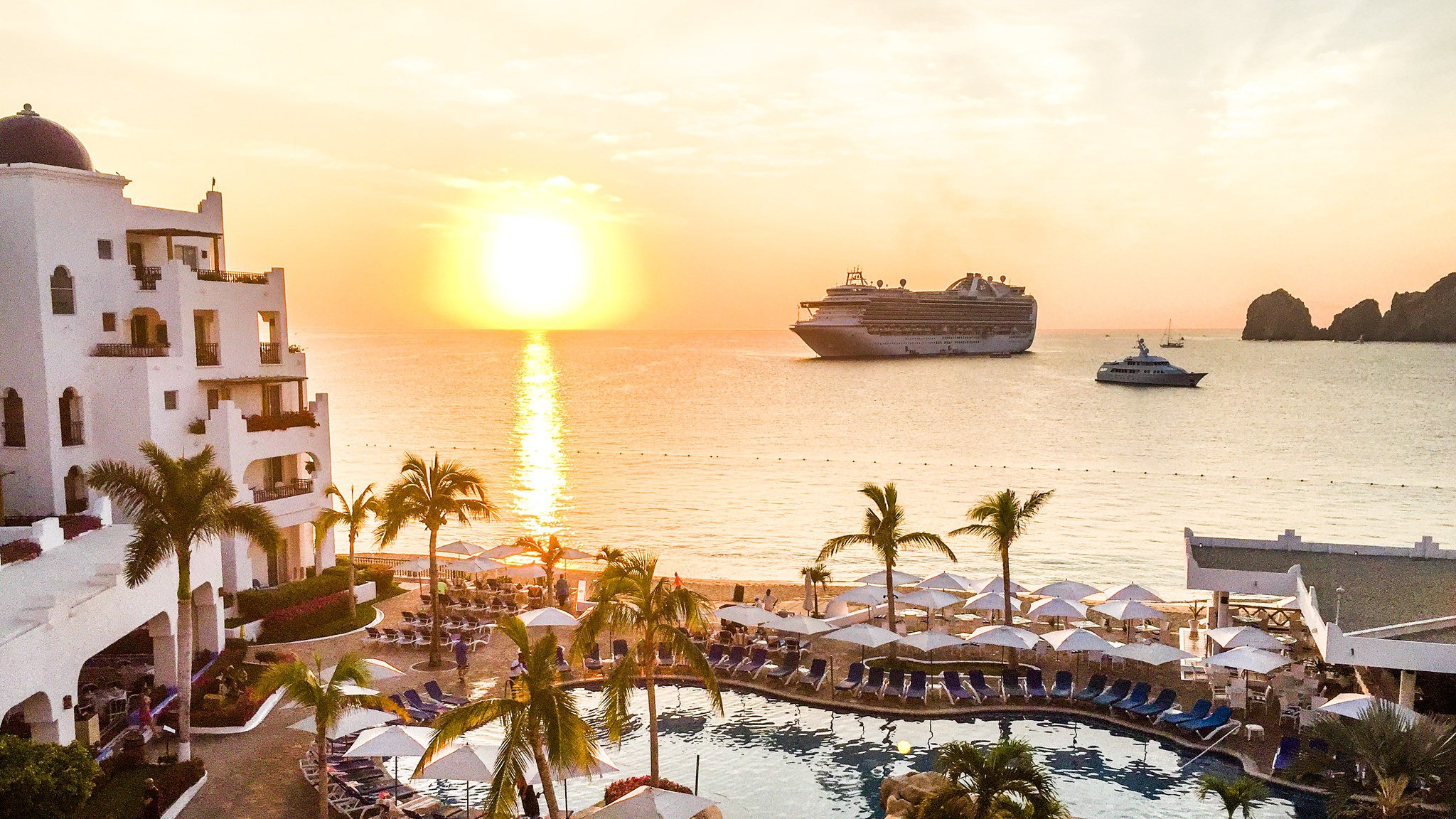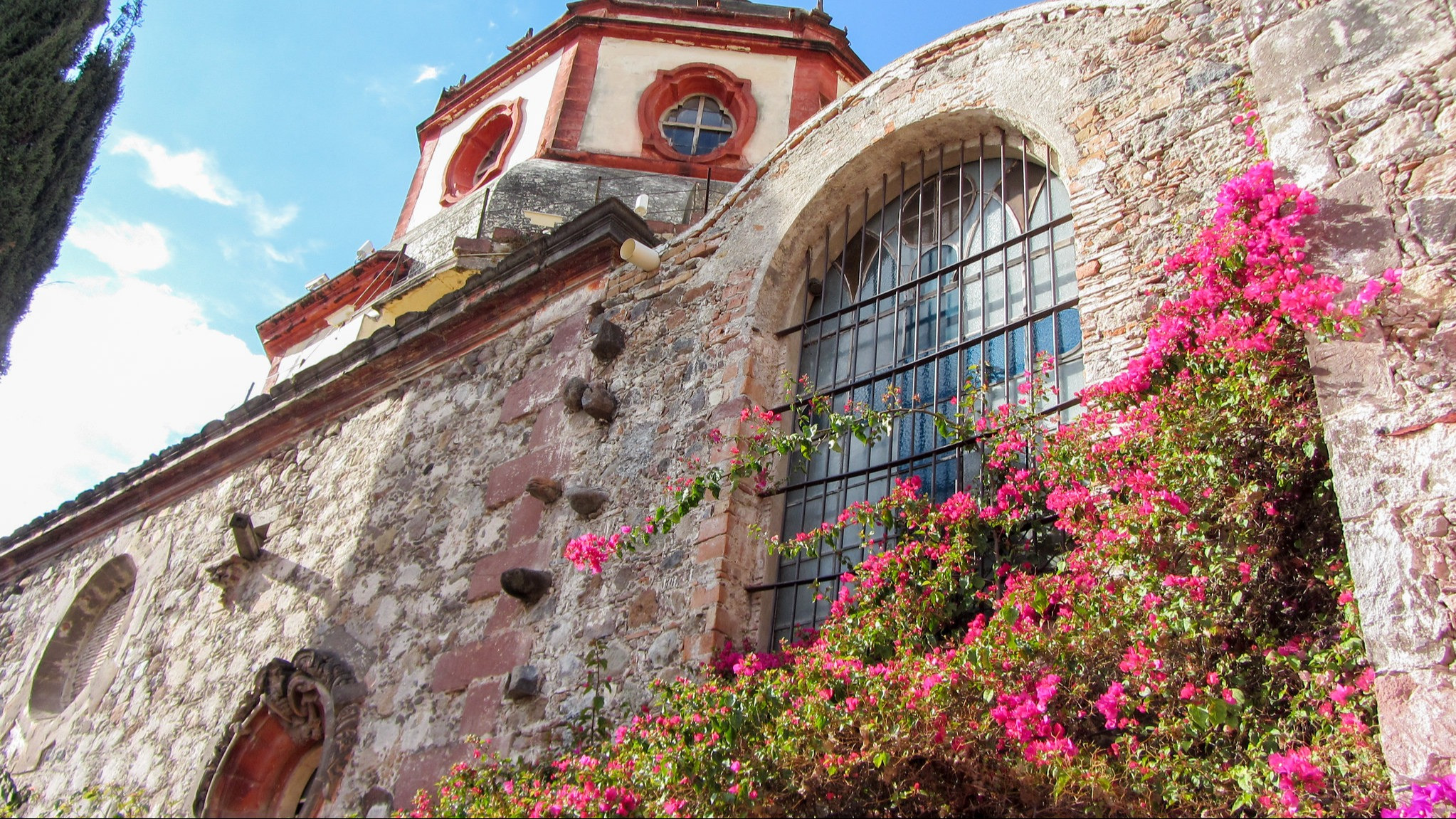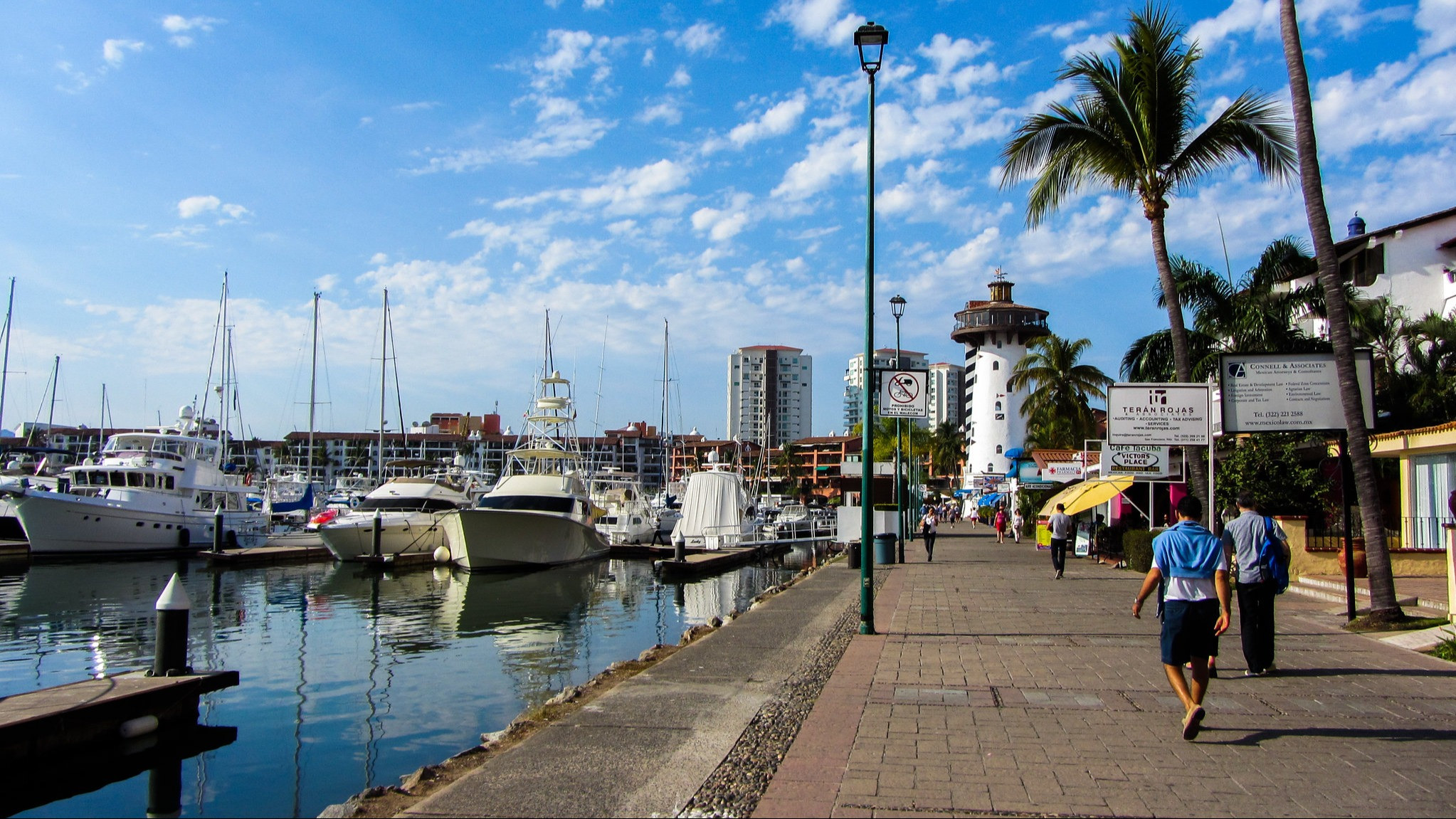Can An American Citizen Own Land In Mexico? Absolutely! Owning property in Mexico as an American citizen is not only possible but also a popular choice, especially among the LGBTQ+ community seeking vibrant destinations and investment opportunities. At gaymexico.net, we’re here to guide you through the process, ensuring a smooth and informed journey toward securing your dream property in Mexico. We will help you navigate legal frameworks, understand property ownership options, and discover LGBTQ+-friendly communities.
1. Understanding Property Ownership in Mexico for American Citizens
Thinking about owning a slice of paradise in Mexico? Here’s the scoop on how American citizens can make that dream a reality:
1.1. Is it legal for an American citizen to own property in Mexico?
Yes, it is legal for an American citizen to own property in Mexico. There are some restrictions, but nothing that prevents you from buying that beautiful home or investment property.
- Direct Ownership: Outside the restricted zones, which are areas within 31 miles (50 kilometers) of the shoreline and 62 miles (100 kilometers) of international borders, American citizens can own property directly, just like Mexican nationals.
- Ownership through Fideicomiso: Within the restricted zones, you can own property through a fideicomiso, which is a bank trust. The bank holds the title, but you, as the beneficiary, have all the rights to use, enjoy, and even sell the property. Think of it as a long-term lease with all the benefits of ownership.
- Mexican Corporation: Another option is to set up a Mexican corporation. This might be useful if you plan to use the property for commercial purposes.
1.2. What is the Restricted Zone in Mexico?
The Restricted Zone, established in Article 27 of the Mexican Constitution, places certain limitations on direct foreign ownership of land near coastlines and borders. This zone extends 50 kilometers (approximately 31 miles) inland from the high tide line of Mexican coasts and 100 kilometers (approximately 62 miles) from its international borders.
To facilitate foreign investment in these areas, Mexico introduced the fideicomiso, or bank trust, which enables foreigners to indirectly own and control property within the Restricted Zone.
1.3. What is a Fideicomiso (Bank Trust)?
A fideicomiso is a bank trust agreement that allows foreigners to own property within Mexico’s restricted zones. Here’s how it works:
- The Bank as Trustee: A Mexican bank acts as the trustee, holding the title to the property.
- The Foreigner as Beneficiary: You, as the American citizen, are the beneficiary of the trust, granting you all the rights and responsibilities of ownership.
- Control and Use: You have the right to use, enjoy, lease, and sell the property as you wish.
- 50-Year Renewable Trusts: Fideicomisos are typically set up for 50-year terms and are renewable, ensuring long-term control and ownership.
1.4. What are the benefits of using a Fideicomiso?
Using a fideicomiso offers several advantages for American citizens looking to own property in Mexico:
- Legal Compliance: It’s a legal and established method for owning property in restricted zones.
- Control: You maintain control over the property and can make decisions about its use and sale.
- Inheritance: You can designate beneficiaries to inherit the property, simplifying the transfer process and avoiding probate issues in Mexico.
- Security: Fideicomisos are managed by reputable Mexican banks, ensuring a secure and regulated process.
1.5. How does owning property through a Mexican corporation work?
Another way to own property in Mexico, particularly for commercial purposes, is through a Mexican corporation:
- Setting Up a Corporation: You’ll need to establish a Mexican corporation, which involves registering with the Mexican government and complying with local regulations.
- Corporate Ownership: The corporation, rather than you personally, owns the property.
- Business Activities: This structure is ideal if you plan to rent out the property, develop it, or use it for other business ventures.
 Los Cabos, Baja California, Mexico
Los Cabos, Baja California, Mexico
1.6. Direct Deed vs. Fideicomiso:
| Feature | Direct Deed | Fideicomiso (Bank Trust) |
|---|---|---|
| Location | Outside restricted zones | Within restricted zones |
| Ownership | Direct ownership in your name | Bank holds title; you are the beneficiary |
| Control | Full control | Full control, same as direct ownership |
| Inheritance | Subject to Mexican inheritance laws | Beneficiaries can be named for easy transfer |
| Term | Indefinite | 50-year renewable term |
| Ideal For | Properties away from coasts and borders | Coastal and border properties, residential use |
| LGBTQ+ Considerations | No specific considerations | Simplifies inheritance for partners, friends |
1.7. Ejido Land: What You Need to Know
Ejido land is a unique aspect of Mexican property ownership rooted in the country’s history and agrarian reforms. Understanding ejido land is crucial for any potential buyer to avoid legal complications and ensure a secure investment.
Ejido land refers to communal land granted to rural communities by the Mexican government, originating from the post-revolutionary era in 1917. These lands were intended for agricultural use and community development, and they are governed by specific regulations to prevent individual accumulation of large landholdings.
Although ejido land is not private property, it is possible to privatize it through a legal process called “dominio pleno.” However, this process can be lengthy and complex, often requiring the approval of the ejido assembly and compliance with various legal requirements.
1.8. Due Diligence: Verifying Property Status
Before purchasing any property in Mexico, especially land that may have ejido origins, conducting thorough due diligence is essential. This involves:
- Title Search: Engaging a reputable attorney to conduct a comprehensive title search to verify the property’s legal history and ownership status.
- Ejido Verification: Confirming whether the property was ever part of an ejido and, if so, ensuring that the privatization process was completed correctly and without any outstanding claims.
- Expert Consultation: Seeking advice from real estate professionals and legal experts familiar with ejido land issues to assess the risks and potential challenges associated with the property.
2. Step-by-Step Guide to Buying Property in Mexico
Ready to take the plunge? Here’s a step-by-step guide to help you navigate the process smoothly:
2.1. Step 1: Find Your Dream Property
- Online Resources: Websites like gaymexico.net offer listings of LGBTQ+-friendly properties and communities in Mexico.
- Real Estate Agents: Work with a reputable real estate agent familiar with the area and the specific needs of LGBTQ+ buyers.
- Visit and Explore: Take the time to visit different areas and properties to find the perfect fit.
2.2. Step 2: Make an Offer
- Promissory Agreement: Your attorney will draw up a “promissory agreement” (contrato de promesa) outlining the terms of the offer.
- Negotiation: Be prepared to negotiate the price and terms with the seller.
- Earnest Money: Once your offer is accepted, you’ll need to put down earnest money, typically 10% to 20% of the purchase price.
2.3. Step 3: Secure Your Funds
- Escrow Account: It’s best to hold the earnest money in an escrow account with a trusted third party.
- Financing: Explore your financing options. Some Mexican banks offer mortgages to foreigners, or you can consider financing from a U.S. bank or private lender.
2.4. Step 4: Due Diligence and Legal Review
- Title Search: The notario (a specialized lawyer) will investigate the property’s title to ensure it is free of any encumbrances or legal issues.
- Appraisal: Get the property appraised to determine its market value.
- Purchase Agreement: Your attorney will prepare the purchase agreement (contrato de compraventa). Make sure you understand every clause.
2.5. Step 5: The Closing
- Meet with the Notario: You, the seller, and your attorney will meet with the notario to sign the deed (escritura).
- Payment: Bring a check for the remaining balance or have the funds transferred from the escrow account.
- Deed Registration: The notario will register your ownership with the land registry office.
2.6. Step 6: Post-Closing Steps
- Mexican Will: Have your attorney draw up a Mexican will to ensure your property is transferred according to your wishes.
- Ministry of Foreign Affairs: Ensure that the Ministry of Foreign Affairs is notified of your purchase.
 San Miguel de Allende
San Miguel de Allende
3. Navigating Legal and Financial Aspects
3.1. Hiring the Right Professionals
- Real Estate Agent: Choose an agent who is experienced in working with foreign buyers and understands the local market.
- Notario: A notario is a specialized lawyer appointed by the government to oversee real estate transactions. They ensure the legality of the transfer and register the deed.
- Attorney: Hire an attorney to review contracts, conduct due diligence, and protect your interests throughout the process.
- Accountant: Get advice from an accountant on tax implications and financial planning.
3.2. Understanding Mexican Real Estate Taxes
- Acquisition Tax: Payable by the buyer, typically 2% to 4% of the property value.
- Property Tax (Predial): An annual tax based on the assessed value of the property. It is relatively low compared to U.S. property taxes.
- Rental Income Tax: If you rent out your property, you’ll need to pay income tax on the rental income.
- Capital Gains Tax: If you sell the property, you’ll owe capital gains tax on the profit.
3.3. Closing Costs
| Fee | Description | Approximate Cost |
|---|---|---|
| Transfer Tax | Tax paid when the property changes hands | 2% – 4% of property value |
| Trustee Bank Fee | Fee for establishing and maintaining the fideicomiso | $500 – $1,000 setup, $500 – $800 annual |
| Appraisal | Assessment of the property’s value | Varies depending on property size |
| Non-Encumbrance Certificate | Verifies that the property has no liens or debts | $50 – $100 |
| Notary Fee | Fee for the notario‘s services, including legal review and registration of the deed | 0.5% – 1% of transaction size |
| Public Registry Fees | Fees for registering the deed with the land registry office | $300 – $500 |
3.4. Currency Exchange Considerations
When transferring funds to Mexico, be mindful of currency exchange rates and fees. Work with a reputable currency exchange service to get the best rates.
3.5. Estate Planning: Mexican Will
To ensure your property is transferred according to your wishes, it’s essential to have a Mexican will. This will simplify the inheritance process and avoid potential legal complications.
4. Popular Destinations for LGBTQ+ Property Owners in Mexico
Mexico offers a variety of destinations that are particularly welcoming to the LGBTQ+ community. Here are a few top spots:
4.1. Puerto Vallarta
Known as the “San Francisco of Mexico,” Puerto Vallarta is a vibrant and inclusive city with a thriving LGBTQ+ scene. The Romantic Zone is the heart of the gay district, offering numerous bars, clubs, and restaurants.
 Puerto Vallarta
Puerto Vallarta
4.2. Mexico City
The capital city boasts a diverse and cosmopolitan atmosphere with a growing LGBTQ+ community. Neighborhoods like Zona Rosa are known for their gay-friendly establishments and vibrant nightlife.
4.3. San Miguel de Allende
This charming colonial town is popular among expats and offers a relaxed and welcoming environment. While not exclusively gay, San Miguel de Allende is known for its tolerance and inclusivity.
4.4. Riviera Maya (Playa del Carmen & Tulum)
The Riviera Maya, encompassing Playa del Carmen and Tulum, has beautiful beaches and a growing LGBTQ+ presence. These destinations offer a mix of relaxation and nightlife, making them attractive to property owners.
4.5. Guadalajara
Mexico’s second-largest city, Guadalajara, has a large and active LGBTQ+ community. It offers a blend of traditional Mexican culture with modern amenities and a welcoming atmosphere.
5. Safety and Security for LGBTQ+ Individuals in Mexico
5.1. General Safety Tips
- Stay Informed: Keep up-to-date with local news and events.
- Be Aware of Your Surroundings: Pay attention to your surroundings and avoid walking alone in unfamiliar areas at night.
- Use Reputable Services: Rely on trusted transportation services and accommodations.
- Respect Local Customs: Be mindful of local customs and traditions.
- Emergency Contacts: Have emergency contact information readily available.
5.2. LGBTQ+-Specific Safety Tips
- Research Local Laws: Familiarize yourself with local laws and regulations concerning LGBTQ+ rights.
- Identify Safe Spaces: Seek out LGBTQ+-friendly establishments and communities.
- Connect with Local Groups: Connect with local LGBTQ+ organizations and support networks.
- Be Discreet if Necessary: In more conservative areas, it may be wise to be discreet about public displays of affection.
- Report Incidents: If you experience discrimination or harassment, report it to the appropriate authorities.
5.3. Resources for LGBTQ+ Travelers and Residents
- gaymexico.net: An online resource with information on LGBTQ+ travel, events, and communities in Mexico.
Address: 3255 Wilshire Blvd, Los Angeles, CA 90010, United States.
Phone: +1 (213) 380-2177.
Website: gaymexico.net. - Local LGBTQ+ Organizations: Connect with local organizations for support and resources.
- International LGBTQ+ Travel Guides: Consult travel guides for LGBTQ+ travelers.
6. Overcoming Challenges and Misconceptions
6.1. Addressing Common Concerns
- Language Barrier: While many people in tourist areas speak English, learning some basic Spanish phrases can enhance your experience and help you navigate daily life.
- Cultural Differences: Embrace cultural differences and be respectful of local customs and traditions.
- Bureaucracy: Mexico’s bureaucracy can be challenging, but working with experienced professionals can help streamline the process.
6.2. Dispelling Myths About Safety
While safety concerns are valid, it’s important to rely on accurate information and not perpetuate myths or stereotypes. Mexico is generally a safe country for tourists and residents, and many areas are very welcoming to the LGBTQ+ community.
6.3. Building a Support Network
- Connect with Expats: Join expat groups and online communities to connect with other Americans living in Mexico.
- Get Involved Locally: Participate in local events and activities to meet new people and build relationships.
- Learn the Language: Taking Spanish classes can help you integrate into the community and make new friends.
7. Success Stories: LGBTQ+ Individuals Owning Property in Mexico
7.1. Real-Life Experiences
Many LGBTQ+ individuals have successfully purchased property in Mexico and enjoy fulfilling lives there. Their stories highlight the opportunities and rewards of owning property in this vibrant country.
7.2. Testimonials
“I was able to find a home in Puerto Vallarta that suited me perfectly, and I never looked back. The people are friendly, the community is vibrant, and the cost of living is affordable.” – John, Puerto Vallarta resident
“As a gay couple, we were hesitant about buying property in Mexico, but with the help of gaymexico.net and a great real estate agent, we found a safe and welcoming community in San Miguel de Allende. We couldn’t be happier with our decision.” – Michael and David, San Miguel de Allende residents
7.3. Lessons Learned
Their experiences offer valuable lessons for others considering property ownership in Mexico:
- Do your research: Understand the legal and financial aspects of buying property.
- Work with trusted professionals: Engage experienced real estate agents, attorneys, and accountants.
- Connect with the community: Build relationships with locals and expats.
- Embrace the culture: Be open to new experiences and traditions.
 Puerto Vallarta
Puerto Vallarta
8. Tips for a Smooth Transition to Life in Mexico
8.1. Planning Your Move
- Visas and Residency: Understand the visa and residency requirements for living in Mexico.
- Healthcare: Research healthcare options and consider purchasing health insurance.
- Banking: Set up a Mexican bank account for local transactions.
- Transportation: Decide whether to bring your car or purchase one in Mexico.
8.2. Adapting to the Culture
- Learn the Language: Even basic Spanish skills will help you integrate into the community.
- Respect Local Customs: Be mindful of local customs and traditions.
- Embrace the Lifestyle: Be open to new experiences and a slower pace of life.
8.3. Building a Community
- Join Expat Groups: Connect with other expats for support and friendship.
- Volunteer: Get involved in local organizations and give back to the community.
- Take Classes: Learn new skills and meet new people by taking classes in cooking, art, or dance.
9. Resources and Support for Property Owners in Mexico
9.1. Online Communities
- Expat Forums: Online forums and communities where you can ask questions and connect with other expats.
- Social Media Groups: Facebook groups and other social media platforms for expats in Mexico.
9.2. Professional Services
- Real Estate Agents: Experienced agents who can help you find the right property.
- Attorneys: Legal professionals who can guide you through the buying process.
- Accountants: Financial advisors who can help you manage your finances in Mexico.
- Insurance Providers: Companies that offer insurance for property, health, and other needs.
9.3. Government Agencies
- Mexican Consulate: The Mexican consulate in your home country can provide information and assistance.
- Ministry of Foreign Affairs: The Mexican Ministry of Foreign Affairs can provide information on property ownership regulations.
10. Future Trends in Mexican Real Estate
10.1. Emerging Destinations
Keep an eye on emerging destinations that are becoming increasingly popular among expats and LGBTQ+ individuals. These areas may offer more affordable property options and a unique cultural experience.
10.2. Sustainable Development
As sustainability becomes increasingly important, look for eco-friendly developments that prioritize environmental responsibility and community well-being.
10.3. Technological Innovations
Technological innovations are transforming the real estate industry, making it easier to find and purchase property in Mexico. Take advantage of online resources and virtual tours to explore your options.
FAQ: Can An American Citizen Own Land In Mexico?
1. Can an American citizen directly own property in Mexico?
Yes, outside the restricted zones (50 km from coastlines and 100 km from borders), Americans can own property directly.
2. What is a fideicomiso, and how does it work?
A fideicomiso is a bank trust that allows foreigners to own property within the restricted zones. The bank holds the title, but the beneficiary (you) has all ownership rights.
3. Is it safe to buy property in Mexico as an American citizen?
Yes, it is generally safe, but due diligence is essential. Work with reputable professionals like real estate agents and attorneys.
4. What are the main costs associated with buying property in Mexico?
Main costs include acquisition tax, notario fees, appraisal fees, and registration fees, typically totaling 5% to 9% of the property value.
5. How can I ensure my property is transferred to my heirs in Mexico?
Create a Mexican will to ensure your property is transferred according to your wishes, or designate beneficiaries in your fideicomiso.
6. What are some LGBTQ+-friendly destinations in Mexico for property ownership?
Popular destinations include Puerto Vallarta, Mexico City, San Miguel de Allende, and the Riviera Maya.
7. Do I need a Mexican bank account to buy property in Mexico?
While not always required, having a Mexican bank account can simplify transactions and bill payments.
8. Can the Mexican government take my property?
The Mexican government cannot arbitrarily take your land. If there are issues with the title, you are protected by law, like Mexican citizens.
9. What steps should I take after buying property in Mexico?
After buying property, register the deed, obtain a Mexican will, and notify the Ministry of Foreign Affairs.
10. How can gaymexico.net help me find property in Mexico?
gaymexico.net offers listings of LGBTQ+-friendly properties, community information, and resources to help you navigate the buying process.
Owning property in Mexico as an American citizen, especially within the LGBTQ+ community, offers exciting opportunities and a chance to embrace a vibrant culture. Visit gaymexico.net today to explore destinations, connect with resources, and start your journey toward owning your dream property in Mexico.